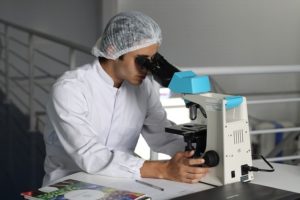
Source m.phys.org: A nanotechnology treatment derived from bone marrow stem cells has reversed multiple sclerosis symptoms in mice and could eventually be used to help humans, according to a new study led by the University of California, Irvine researchers.
“Until now, stem cell therapies for autoimmune and neurodegenerative diseases have produced mixed results in clinical trials, partly because we don’t know how the treatments work,” said corresponding author Weian Zhao, an associate professor of pharmaceutical sciences and biomedical engineering who is affiliated with the Sue & Bill Gross Stem Cell Research Center. “This study helps unravel that mystery and paves the way for testing with human patients.”
In past experiments, intravenously injected stem cells—taken from bone marrow and activated with interferon gamma, an immune system protein—often got trapped in filter organs before reaching their target. For this study, published in the journal ACS Nano, researchers avoided that problem by extracting nano-sized particles called exosomes from the stem cells and injecting them into rodents with MS. Read on.



